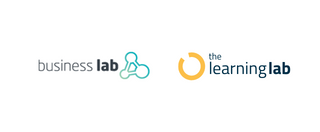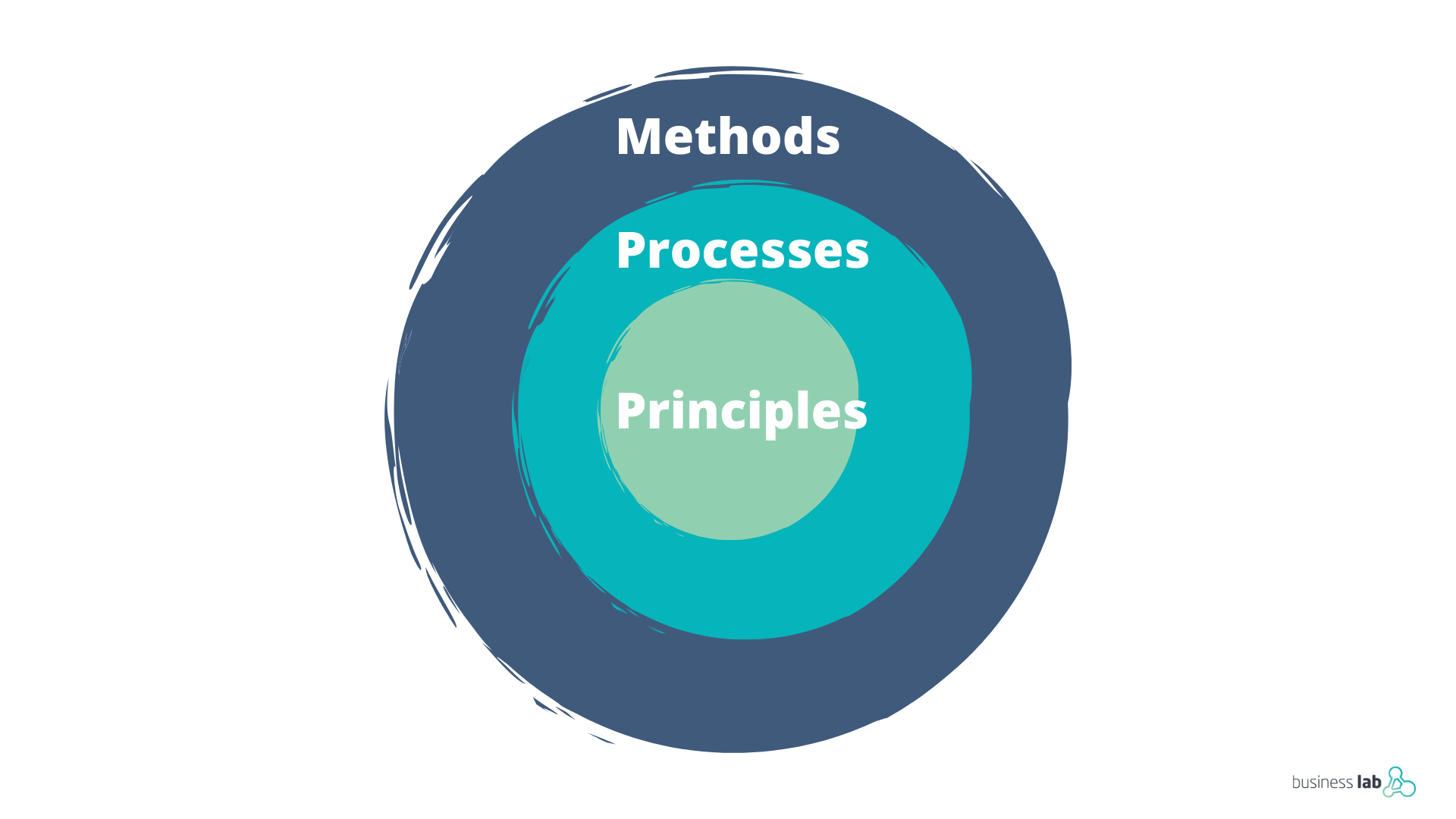
Get The Highlights In Our Personalised Email Course
Don’t have time for our articles and resources right now? No worries. We’ve taken the key principles and created a fully-personalised 8-lesson email course to help you get your engagement project off the ground.
We’re excited to announce that Paul McGregor is establishing a new business called The Learning Lab to grow your capability and capacity to serve community needs.
I bet your organisation has excellent examples of engagement you can point to. Every organisation does. But the real challenge is making those good examples the ‘everyday normal’. How do you build the internal case for engagement so it’s simply ‘The Way We Do Things Around Here’?
We often see purpose-led organisations doing a good job of identifying the impact they are working towards. What is often less clear - and therefore left to chance - is their strategy for getting there. In this article, we unpack a simple model for behaviour change that will clarify where you can make the biggest difference.
Are you involved in some kind of strategy, visioning or planning process at the moment? Of course you are. We love to create strategies, visions and plans. And more than anything, we love to create strategic plans. In this article, however, we’re going to unpack the difference between a strategy and a plan, and explain the pitfalls of strategic planning.
What do you really mean by ‘community’? Many organisations throw about the word without taking the time to define what that means. This can create problems when you lump too many people into one homogenous group. In this article, we suggest four ways of defining your community, and mention some risks to be aware of.
A check-in is a simple method for opening a meeting. There is an open invitation for every person to speak at the start of the meeting. We’ve found that regular check-ins are one of the most powerful rituals to build an inclusive and effective team culture.
Your working environment isn’t simple. Nor is it complicated. It’s complex. And that distinction is important. And when you’re working in the complexity of people’s lives, you need some tools to help you when you get stuck, overwhelmed or confused.
Virtual meetings are here to stay. If you and your teammates are talking about “Zoom fatigue”, then this article will point you towards five simple tactics to set yourselves up for success with virtual meetings.
Do you find that you get nervous about the prospect of enabling public participation in your organisation’s work? It is easy to become caught up in the harmful perceptions about community engagement. Get ready to busts some common myths and see the real advantage of investing in public engagement.
If you’ve ever struggled to explain the “return of investment” of community participation, this article is for you. We recommend turning your mind to a ROI - one that focuses people’s attention on the pain of front-page disasters.
During the COVID lockdown you got a glimpse of the potential of virtual collaboration and engagement. But how mature is your organisation’s approach to online engagement? In this article we suggest five stages of maturity. Plus you’ll get a sneak peak of the future of spatial meetings.
You’ve experienced the benefits of virtual collaboration. Reduced meeting costs. Less travel. Lower emissions. Less time spent in traffic. More inclusive meetings. So let’s challenge ourselves to continue realising those benefits. Learn more in our interview with the National Business Review>>
Principles are powerful. They shape our behaviour in times of crisis or uncertainty. But what are your organisation’s collaboration principles? In this post we share our 4 Collaboration Principles and invite you to adapt them and make them your own.
COVID-19 is here, slap bang in the middle of peak engagement season. You may be concerned about how to take your in-person workshops and events online, and this article is here to help you. You’ll need to change your mindset, as well as your toolkit.
Are you confused by the terms “consultation” and “engagement”? Join the club. In this article, we unpack the differences to help you understand the limitations and strengths of these different levels of participation.
The true purpose of local government might not be what you think. And Peter McKinlay from the Local Government Think Tank argues that councils are missing opportunities to make their lives easier by working differently with communities. This article reveals the true purpose of local government and the little word that has the potential to shift your council’s relationship with your community - if you’re willing to take action.
Do senior leaders in your organisation keep saying “no” to your efforts to better engage your communities? You’re not alone. We’ve heard all sorts of objections to engagement in our work, and we’ve compiled them here to help you wade through them, and make real progress.
Innovation appears to hold the key for councils and government agencies who want to better engage with communities and other organisations. But being innovative means more than just using the latest fancy method. It’s about using different processes. And at its heart, it requires your organisation to embed new principles in how it works with others. If you want to be more innovative with your engagement, this article is for you.
This database lists professional development opportunities for engagement and change professionals. If your job title contains words like engagement, codesign or collaboration - this is for you. And if you offer training services, we invite you to add them to our database so more people can find out about your expertise.
Community engagement is crucial for climate change adaptation, according to Local Government NZ. Yet almost no councils are engaging with communities on climate change. Most are currently “planning to plan”. In this article, we summarise an excellent webinar series to help councils engage their communities on the biggest challenge of a generation.
What role are Community Boards playing across the country in local democracy? What are the opportunities for the future role of Community Boards? These two questions are at the heart of this 2018 research project by Callum Hammond and David Hammond. Community Boards were set up in 1989 through the local government reforms of the Fourth Labour Government. Now, 30 years later, this report investigates the effectiveness of Community Boards and make five recommendations for the future.
Do you ever struggle to communicate or understand the investment logic for engagement? Then this article is for you. In it, we build on the work of Rachel Botsman, the author of "Who Can You Trust?". Trust is the most important currency for organisations to survive. But how do we earn trust in our over-communicating world?
Making the wrong decision about a facilitator can be costly. You want to make sure they’re well prepared and experienced. Sometimes it’s fine to use a volunteer or work colleague; sometimes it’s not worth the risk. This article will help you decide whether or not you need to invest in an independent facilitator for your next strategy or engagement process.
The Business Improvement District (BID) model is one of the most exciting and popular placemaking models in the world. But we see an opportunity to strengthen the model by better involving the community in what BIDs do. We’re tentatively calling this a Neighbourhood Improvement Model and we’re seeking expressions of interest from councils or existing BIDs who want to be part of exploring this innovative opportunity. If that sounds interesting to you - read on
Island Bay’s cycleway is a fascinating community engagement case study. Not just because of the roller coaster facts. But also because of High Court’s judicial review of the consultation process. We’ve picked out five lessons from that judgment. These will be valuable for any organisation interested in involving stakeholders and communities in significant investment decisions and projects.
As a project manager, you’ll usually come across the term “community engagement” when you first start working on projects that impact a lot of people. And you’ll start thinking: How do I squeeze engagement into my project timelines? How does this fit with my project management structure? This article suggests there’s no easy answer tho those questions but helps to shine a light on the way forward.
How does your governance involve people in decision-making without challenging or undermining their own power structure? Is that even possible? This article suggests three questions you need to ask your governance before your organisation can truly move forward with community engagement or empowerment.
Every organisation has its "good examples" of how it engaged with stakeholders or the community. But how do you shift an organisation so these become the everyday norm? Read on to learn how to shift an organisation’s approach to engagement.
Major infrastructure projects have a big impact on communities. Engaging with those communities is critical to the success of those projects, but government officials and infrastructure providers often find this a fraught process. This article will help you find a way forward.
Answer: Bin it.
Most are superficial rubbish. An Engagement Strategy needs to understand and identify the council’s willingness to share power and be a genuine partner with communities. If your council doesn’t have a clear position on this - read on.































